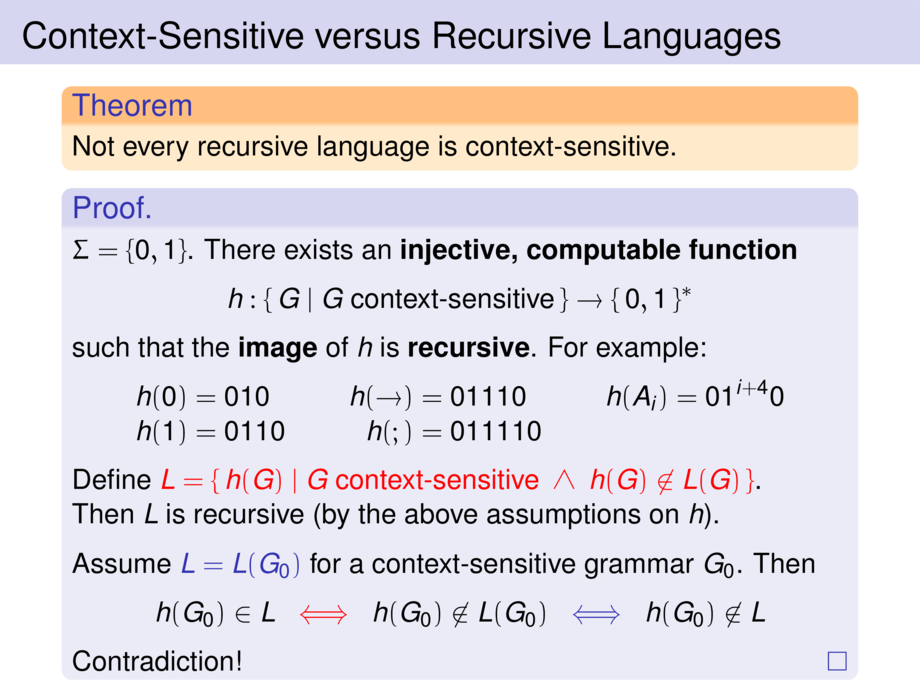



































































































43/43
\begin{frame}{Context-Sensitive versus Recursive Languages}
\begin{goal}{Theorem}
Not every recursive language is context-sensitive.
\end{goal}
\pause
\begin{proof}
$\Sigma=\{0,1\}$. There exists an \emph{injective, computable function}
\begin{talign}
h : \{\,G \mid G \text{ context-sensitive}\,\} \to \{\,0,1\,\}^*
\end{talign}
such that the \emph{image} of $h$ is \emph{recursive}. For example:
\begin{talign}
h(0) &= 010 & h(\rightarrow) &= 01110 & h(A_i) &= 01^{i+4}0 \\[-.5ex]
h(1) &= 0110 & h(;) &= 011110
\end{talign}
\pause
Define \alert{$L = \{\, h(G) \mid G \text{ context-sensitive} \;\wedge\; h(G) \not\in L(G) \,\}$}.
\pause
Then $L$ is recursive (by the above assumptions on $h$).
\pause\medskip
Assume \structure{$L = L(G_0)$} for a context-sensitive grammar $G_0$. \pause Then
\begin{talign}
h(G_0) \in L \;\;\text{\alert{$\iff$}}\;\; h(G_0) \not\in L(G_0) \;\;\text{\structure{$\iff$}}\;\; h(G_0) \not\in L
\end{talign}
\pause
Contradiction!
\end{proof}
\end{frame}

